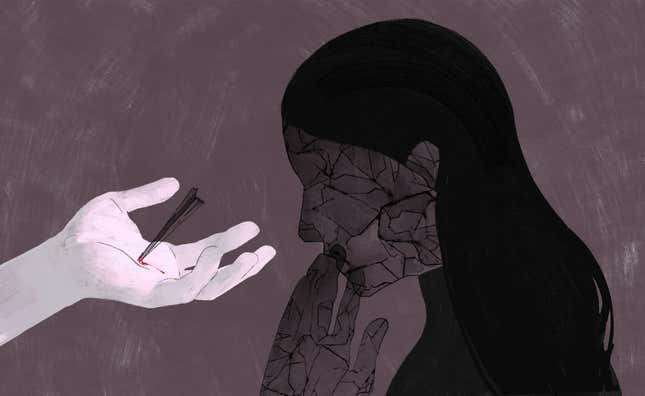The Cost of Your Watershed Moment
Latest

The barrage of sexual harassment coverage by the mainstream media has yet to relent. Almost daily since October when the New York Times published its report by Jodi Kantor and Megan Twohey exposing film producer Harvey Weinstein’s years of predatory, manipulative, criminal, and violent behavior, another successful man is outed as the harasser that many already knew him to be. Their crimes have always existed—whispered about through gossip channels, hidden in plain sight in the punchlines of jokes. The only difference is that now, people and news outlets actually seem to care.
We’ve trained ourselves to carry oppression not like a backpack, noticeably burdensome, but like our own bodyweight.
This past year has been unrelenting in its agony and yet, I keep expecting to feel catharsis while watching these men—too arrogant and assured to ever expect consequences for the harm they’ve caused—be forced to reckon with what they’ve done. But there’s been no joy or relief, not even the strange relief of vengeance, in witnessing their downfalls. Maybe it’s because of that, for every guilty man, there are seemingly a dozen women who have had to flay themselves open, bare both pain and fault before they can be believed. Even then, that may not be enough.
We carry emotional scabs, rough and raised over our past hurt, but it’s only women and other marginalized groups that are expected to rip them off to tell a story. We are supposed to bleed, to excavate past muscle, nerves, and bones as proof of our pain. I have no desire to pick at my scabs, no desire to dig up old memories and share them with strangers. They are better forgotten. But it can feel as though there are few other choices than to share our pain, our stories, no matter how intimate. Women are told that this is our unique responsibility, a gendered requirement to aid in progress. But what if we’d rather avoid revisiting our past trauma? Then everyday can feel like navigating a minefield, triggers holding us paralyzed with the fear that something might explode deep within us and bring up a memory that we’d rather avoid.
-

-

-

-

-

-

-

-

-

-

-

-

-

-

-

-

-

-

-

-

-

-

-

-

-

-

-

-

-

-

-

-

-

-

-

-

-

-

-

-








































